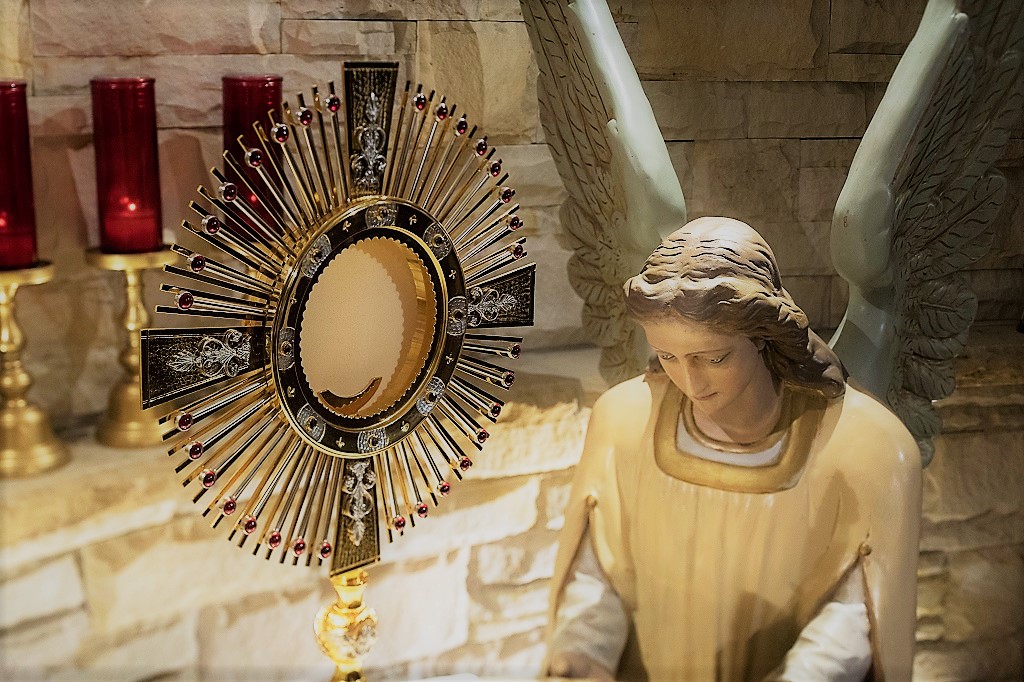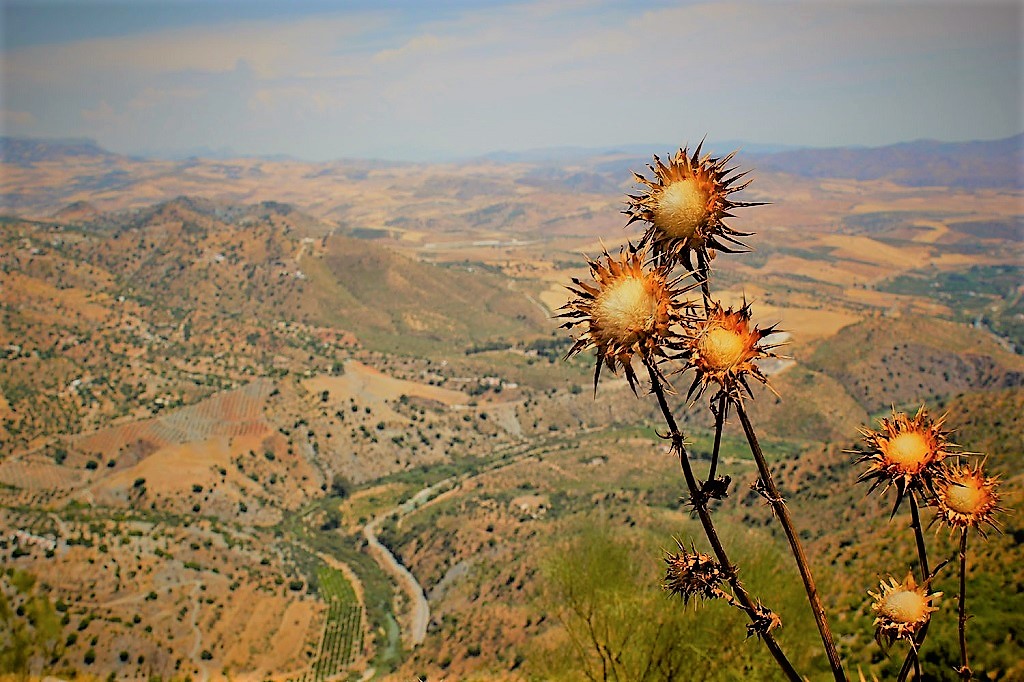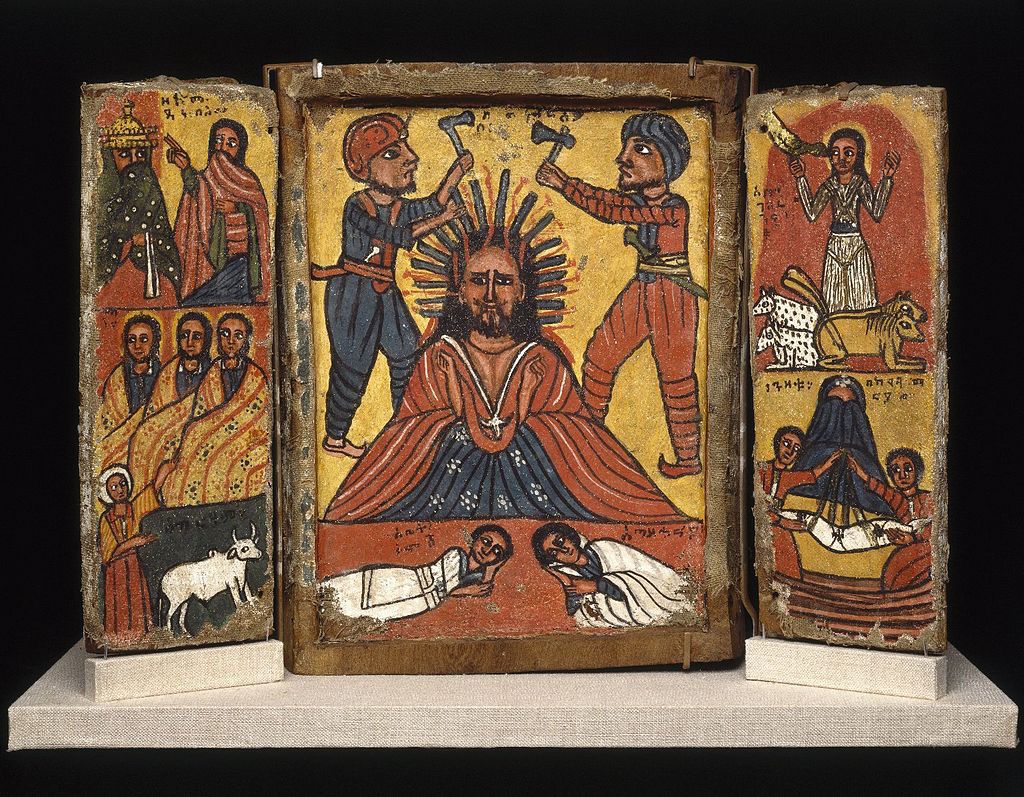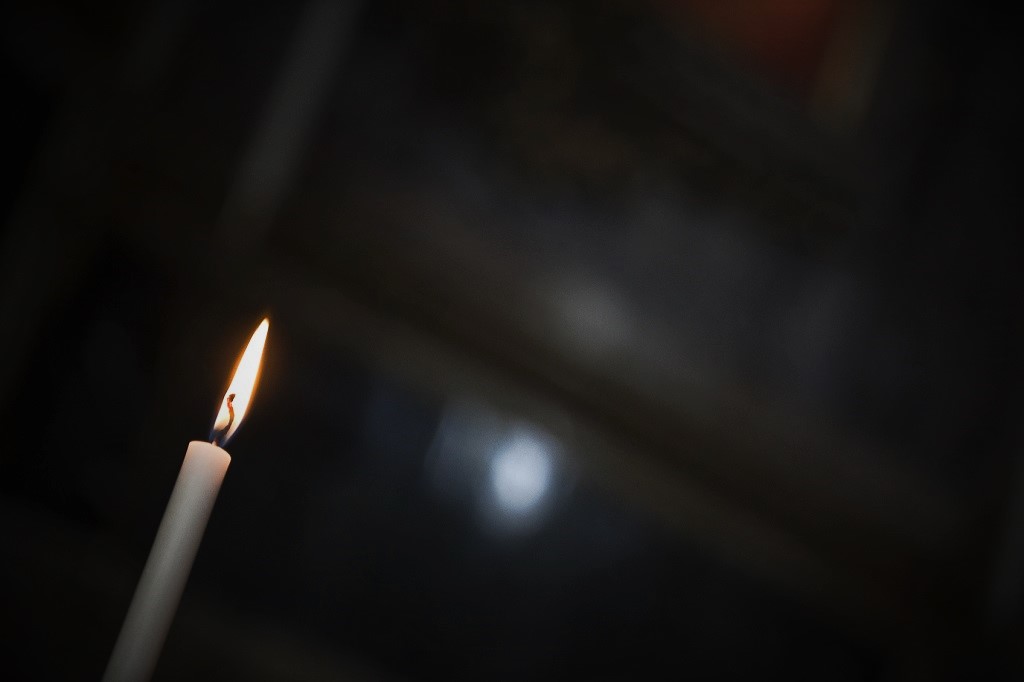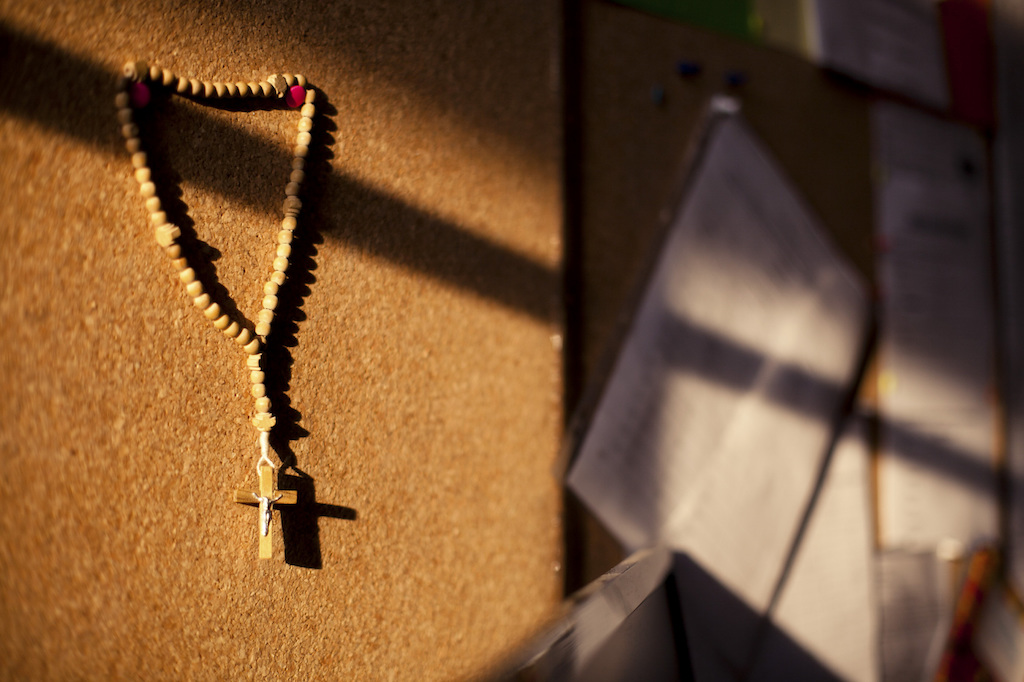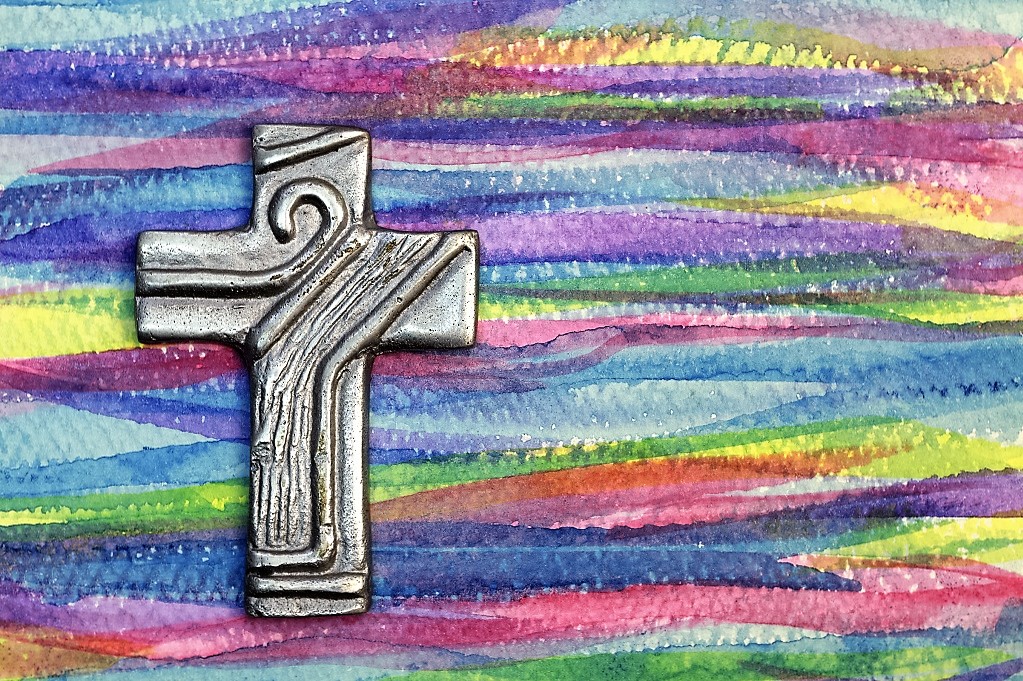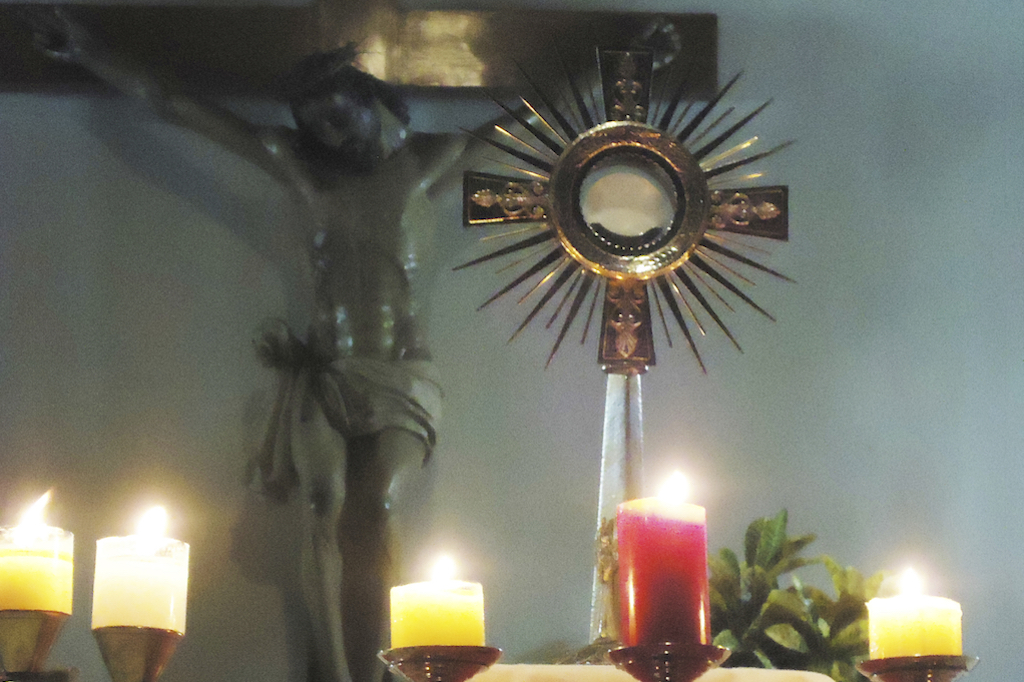Sunday, December 3, 2017, marks the first Sunday of Advent, and the first Sunday of the new liturgical year. Advent is the time when we prepare for the coming of Christ. We remember the historical event of the birth of Jesus, Son of God and Son of Mary, yet we also look forward to Christ’s return. The Gospel for this Sunday, from Matthew, reminds us to be alert to this event.
How exactly do we prepare for Christ? How do we invite Him in? Do we even really want to invite Him in? It’s all well and good to meet Jesus on Sundays – sort of like a weekly coffee date with a friend. But you don’t invite your friend to move in with you! No, it’s really far easier to just keep Jesus “contained,” in church, on Sundays.
In the book, With Burning Hearts: A Meditation on the Eucharistic Life, priest-contemplative Henri Nouwen says that the moment of Eucharist is THE single most important decision of our lives: Are we going to allow Christ in? It is a decision to make Christ part of your life, every moment of every day, to remove the walls you have placed around Him.
Jesus is a very interesting person; his words are full of wisdom. His presence is heart-warming. His gentleness and kindness are deeply moving. His message is very challenging. But do we invite him into our home? Do we want him to come to know us behind the walls of our most intimate life? Do we want to introduce him to all the people we live with? Do we want him to see us in our everyday lives? Do we want him to touch us where we are most vulnerable? Do we want him to enter into the back rooms of our homes, rooms that we ourselves prefer to keep safely locked? Do we truly want him to stay with us when it is nearly evening and the day is almost over?
Christ, you see, is not meant to be contained. He is not meant to be a weekly visitor or a standing coffee date which one can easily cancel if something comes up. He is not even meant to be a boarder in our home; a person who rents a room but is seldom seen or heard.
There is a reason that we encounter Christ around the table, the altar. The act of gathering around a table to share a meal is an act of intimacy. Even strangers become friends when they gather together to not simply eat, but to enjoy the food, the company, the joy of elevating basic human nourishment to an occasion of joy.
Yet no hostess in the world would think of handing out coats to the guests just as the last mouthful has been consumed: “Oh! Out to you go! Been lovely to see you, but time to get!” We would be shocked – and rightly so. No, part of the invitation to the table is the chance to linger and further enjoy the company of those gathered. And if the weather has turned bad while the meal was being enjoyed, the host and hostess would find blankets and pillows and places for everyone to rest their heads.
So too, you also must be prepared, for at an hour you do not expect, the Son of Man will come. – Mt. 24:44
As we prepare for the holy season of Advent, let us begin by asking ourselves: Do I REALLY want Christ to be part of my entire life? Am I only giving Him a sliver of my time? Where do I deliberately keep Christ from entering? Why? Is Christ truly a guest in my home, my life?
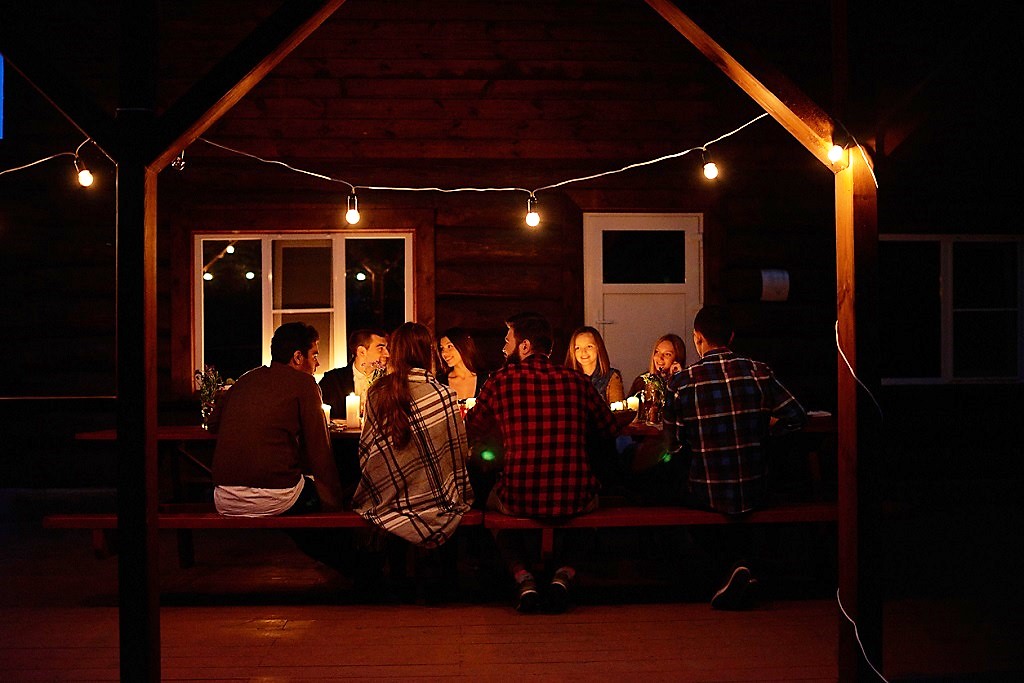
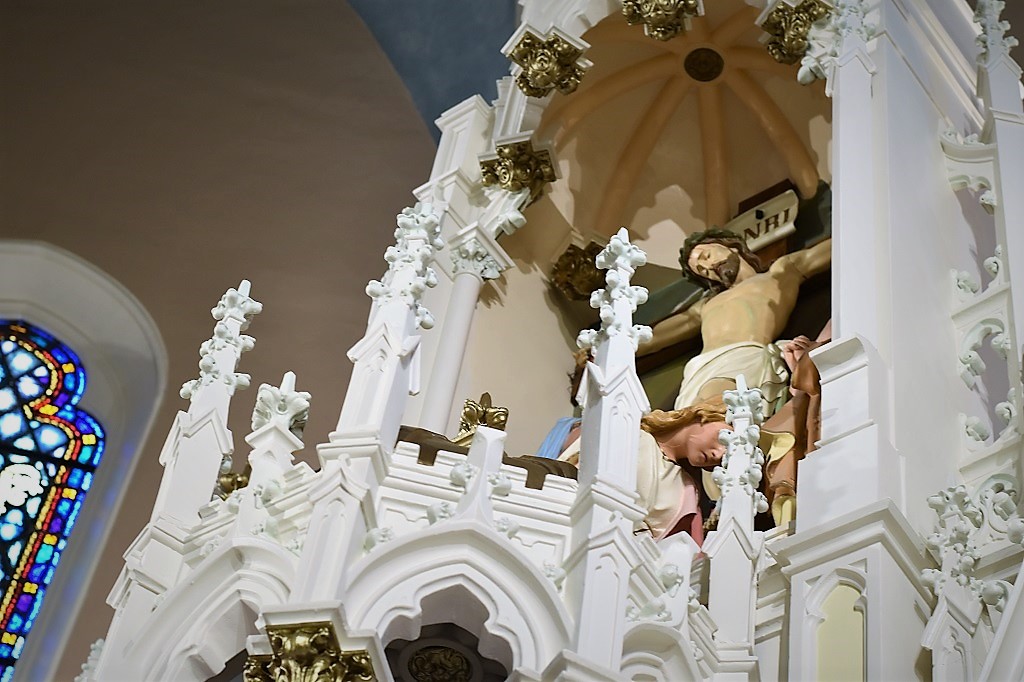
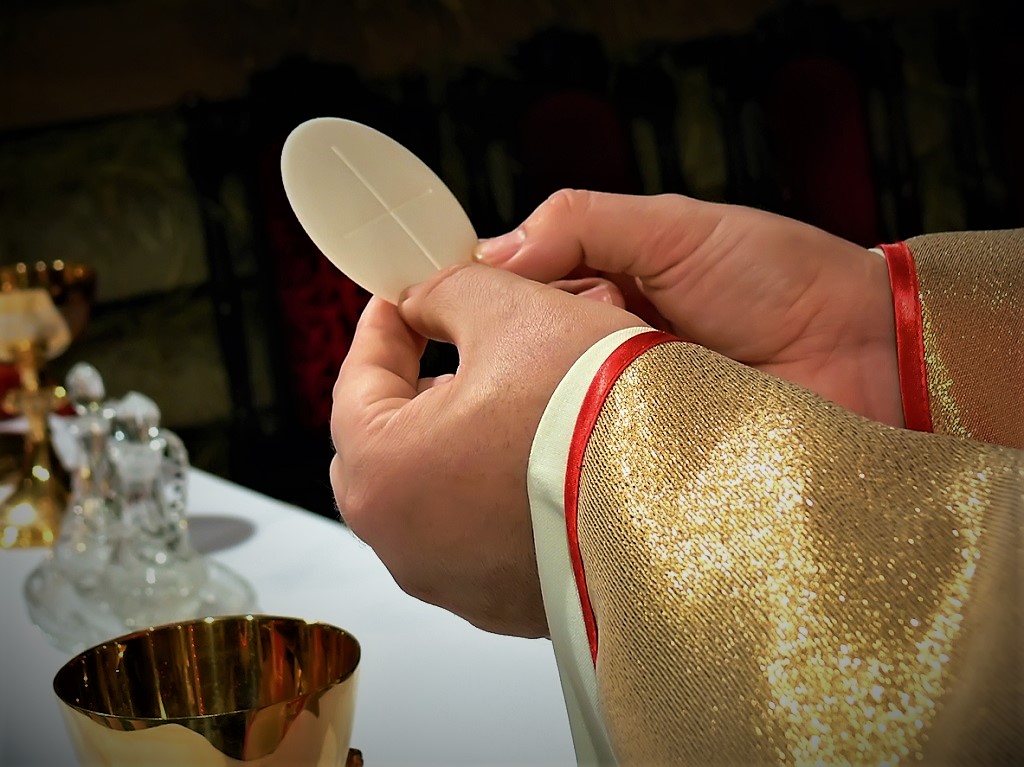
 Elise Hilton is an author, blogger and speaker. Her role at Diocesan Publications is Editor & Writer with the Marketing Team. She has worked in parish faith formation and Catholic education for over 30 years. A passionate student of theology, Elise enjoys sharing her thoughts on parish communication, the role of social media in the Church, Franciscan spirituality and Catholic parenting. To enquire about booking her as a speaker, please contact her at
Elise Hilton is an author, blogger and speaker. Her role at Diocesan Publications is Editor & Writer with the Marketing Team. She has worked in parish faith formation and Catholic education for over 30 years. A passionate student of theology, Elise enjoys sharing her thoughts on parish communication, the role of social media in the Church, Franciscan spirituality and Catholic parenting. To enquire about booking her as a speaker, please contact her at 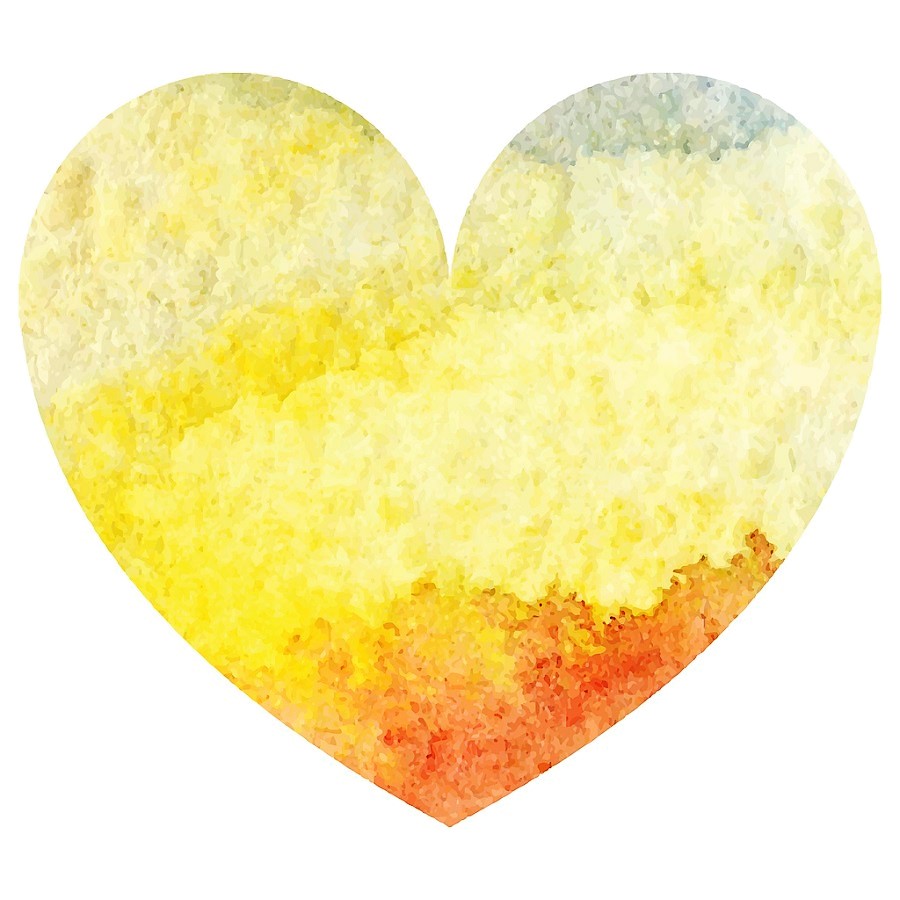
 As Diocesan Publications’ Product Evangelist, Shultz is committed to showing parish and diocesan staffs how to use our communication tools to their best advantage. As an experienced speaker on all things Catholic, he has addressed thousands of teens and young adults on topics such as the Sacraments, chastity, and boldly living the Catholic faith. Driven by his passion for Theology of the Body, Tommy studied at the Theology of the Body Institute and has spoken at numerous Theology of the Body conferences. He served as a missionary of purity, speaking to over 20 thousand youth about the message of purity across the state of Pennsylvania. He is a founder of the Corpus Christi Theology of the Body campus organization at Franciscan University. Shultz also served as director of youth and young adult ministries for the Diocese of Baker, OR.To book Tommy for an event or for further information please visit
As Diocesan Publications’ Product Evangelist, Shultz is committed to showing parish and diocesan staffs how to use our communication tools to their best advantage. As an experienced speaker on all things Catholic, he has addressed thousands of teens and young adults on topics such as the Sacraments, chastity, and boldly living the Catholic faith. Driven by his passion for Theology of the Body, Tommy studied at the Theology of the Body Institute and has spoken at numerous Theology of the Body conferences. He served as a missionary of purity, speaking to over 20 thousand youth about the message of purity across the state of Pennsylvania. He is a founder of the Corpus Christi Theology of the Body campus organization at Franciscan University. Shultz also served as director of youth and young adult ministries for the Diocese of Baker, OR.To book Tommy for an event or for further information please visit 